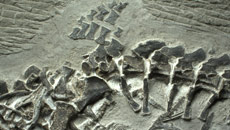Practice will not make you perfect but it will usually make you better at what you are practicing, a promising study shows.
Also, while practice will not make perfect all people, it will make almost everyone better.
"Why do so few people who are involved in sports such as golf, musical instruments such as the violin or careers such as law or medicine ever reach an expert level of performance?" asked Fred Oswald, a professor and chair of psychology at Rice University.
This question is the subject of a long-running debate in psychology.
To decipher this, researchers reviewed 88 previous studies with over 11,135 participants that investigated relevant research on practice predicating performance in music, games, sports, educational and occupational domains.
Within each domain, researchers averaged the reported results across all relevant studies.
They found that "deliberate practice" - defined as engagement in structured activities created specifically to improve performance in a specific field - explained 26 percent of the variance in performance for games, 21 percent for music, 18 percent for sports, four percent for education and less than one percent for professions.
"Deliberate practice was a strong overall predicator of success in many performance domains, and not surprisingly, people who report practicing a lot generally tend to perform at a higher level than people who practice less," Oswald maintained.
However, no matter how strongly practice predicated performance in our findings, there was always statistical room for other personal factors, including basic abilities, to predict learning a skill and performing successfully, he noted.
"Other factors matter as well, but even so, no one says that practice will ever hurt you; but be careful if you are walking tightropes," Oswald concluded.





